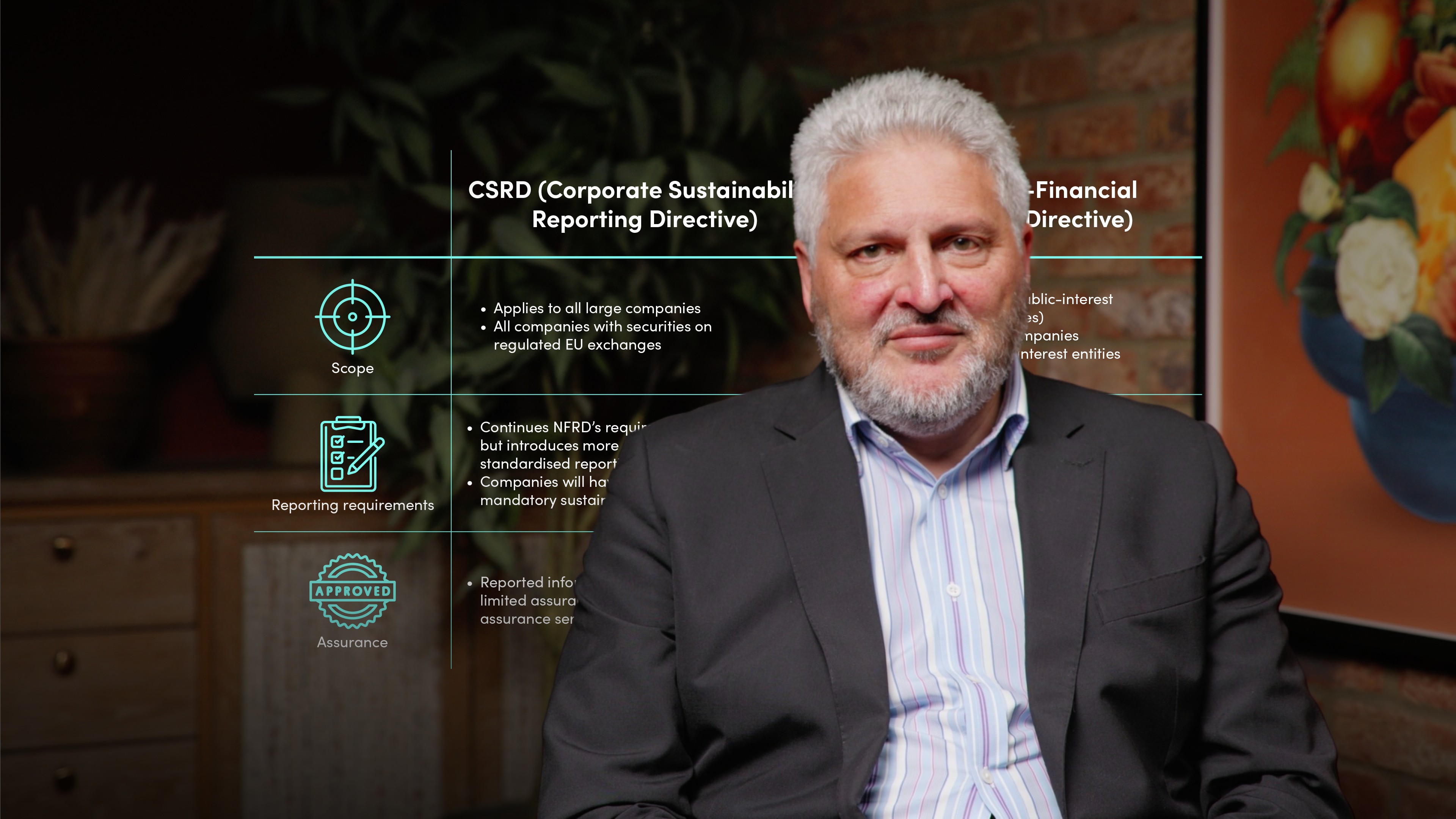
The Corporate Sustainability Reporting Directive (CSRD)

Keith Mullin
35 years: Capital markets editorial
In this video, Keith discusses the Corporate Sustainability Reporting Directive (CSRD) and its impact on transparency in ESG disclosures. He explores the purpose of the CSRD, its differences from other directives like SFDR and NFRD, and the significance of the Sustainability Reporting Standards (SRS). Join us to understand how the CSRD promotes transparency, sustainability, and provides valuable insights for investors and stakeholders.
In this video, Keith discusses the Corporate Sustainability Reporting Directive (CSRD) and its impact on transparency in ESG disclosures. He explores the purpose of the CSRD, its differences from other directives like SFDR and NFRD, and the significance of the Sustainability Reporting Standards (SRS). Join us to understand how the CSRD promotes transparency, sustainability, and provides valuable insights for investors and stakeholders.
Subscribe to watch
Access this and all of the content on our platform by signing up for a 7-day free trial.

The Corporate Sustainability Reporting Directive (CSRD)
14 mins 14 secs
Key learning objectives:
Understand who the CSRD applies to
Outline when the Directive will come into effect
Identify the implications and next steps for businesses as a result of the CSRD
Overview:
The Corporate Sustainability Reporting Directive (CSRD), an integral part of the EU's sustainability agenda, significantly enhances transparency in environmental, social, and governance (ESG) disclosures. Replacing the Non-Financial Reporting Directive, the CSRD imposes stricter reporting requirements on approximately 50,000 entities, which encompass large, listed companies and those non-EU firms with substantial EU operations. It adopts the double materiality principle, necessitating companies to disclose both their impacts on sustainability and the effects of sustainability on their businesses. Initiated in 2022, the CSRD introduced the European Sustainability Reporting Standards (ESRS) to assure accurate, comprehensible, and comparable sustainability reporting, with full adoption expected by June 2023. Ultimately, this directive promotes corporate transparency, fosters sustainability, and provides valuable ESG insights for investors and other stakeholders.
Subscribe to watch
Access this and all of the content on our platform by signing up for a 7-day free trial.
Subscribe to watch
Access this and all of the content on our platform by signing up for a 7-day free trial.

Keith Mullin
There are no available Videos from "Keith Mullin"





























